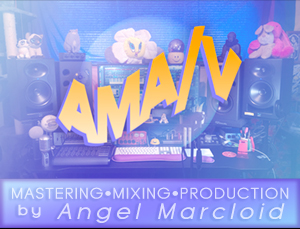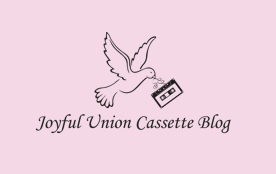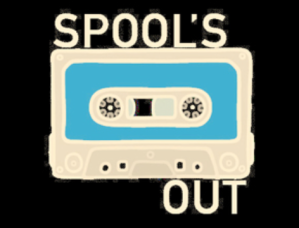Though artistic sincerity in general has always been the underlying seed from which most quality underground music sprouts from, I feel that within the last decade or so the more conventional/aged sub-genres (such as lo-fi indie rock [I know, I hate the word ‘indie” too, but it really did used to mean what it implied — rather than acting as a blanket term for immature, emotionally-charged pseudo-folk/soft rock) have more or less been unadopted by experimental music enthusiasts. I do believe that the above-mentioned rebranding of certain genre tags has contributed to this on a collective subliminal level. However, I also posit that the traditional band setup and an automated devotion to a verse/chorus/verse/chorus/bridge/chorus design play a bigger part in this distancing for a lot of us. And no, it’s not what you’re thinking. We’re not simply too cool for lyrics, song structure or tried-and-true member configurations; we’ve just been taking a long-needed break from the format. Even if you love pizza more than anything, you don’t want to eat it every night. Well, maybe if you’re Papa John you do.
That being said, the overall ethos of the underground tape community unapologetically revolves around the idea of honest exploration/expression — not some holier-than-thou adherence to outsider genres (although it seems that way sometimes). We — the entire nebulous cluster of wrongfully-accused snobs — are always evolving, always ready to be surprised by artists who strive to achieve something real.
So, trust me when I say that in this gut-punch year of 2020, I believe that we are more than willing to return (in our hearts) to simpler times and be entranced by worthy lo-fi indie rock music — if there is such a group to beckon us back.
Enter: Portabella.
Armed with a Tascam four-track recorder, a home studio that would make any of us jealous, and decades worth of experience, South Carolina half-brothers Jason High and William Hill produce bite-sized lo-fi gems that cause various forms of synesthesia. Listen to the words “Don’t want this light shining down on me/Don’t want your guilt slowing down my speed/I just want to feel lovely in my spine” as they are sung over shimmering, layered riffs and crunchy, forward-driving beats and you may very well taste the bitter, mildewy essence of a long, lost house venue basement on the back of your tongue. Or sing along to the repetitive mantra of “Bathtub Cyanide” and it’s entirely possible you may hallucinate the neon glow of your favorite old punk bar’s janky street sign.
Recently, they made their cassette label debut with a (now sold out) self-titled release on Paisley Shirt Records (out of San Fransisco, California). It’s been a long time coming.
“I started out as a drummer at twelve years old.” Jason High says as he reflects on his humble beginnings. “When I was nineteen, I first heard Sebadoh (specifically the Weed Forestin cassette) – and it made me want to write and play guitar. I got a cheap acoustic and a Tascam portastudio eight-track. I never took guitar lessons. I only had four strings and tuned to an open G. We (myself, Will and our good friend Jeremy) started out as a recording project on the weekends in 1994. We recorded for five years and accumulated a potato box of 80 cassette recordings – which I still have.”
Despite the structural integrity of the tracks that comprise their self-titled release, the Portabella buds have nonetheless always embraced a certain level of improvisational openness when it comes to songwriting.
“With the writing process I would always come up with the songs and show them to Will and Jeremy. I always gave them free range.” Jason says. “They could do whatever they wanted as long as it sounded good. I still operate that way. Will would sometimes write poetry. Which he is very good at. We would record some improv avant-garde noise and I would do spoken word of his poetry. That was always fun. We never really knew what was going to happen whenever we got together to record.”
Due to various life circumstances, the group broke up. Will got married and moved out of state, leaving Jason to explore Portabella’s possibilities with various alternative iterations. Though it was easy to entice other artists to collaborate, it was difficult to convince them to remain as full time members. This is an ironic trend with many free-spirited projects based on improvisation and individual creative autonomy; it’s almost as if musicians are frightened of too much freedom. They are unable to view an improvised jam session as anything but a structureless antithesis to “band practice”. It’s a sad normality in the music world — as anyone who prefers chaos over order (at least when it comes to the genesis of songs and overarching album concepts) is well aware of.
Contrarily, a more positive normality is the strength of family and musical friendships. Though they were long separated by geographic distance, the two half brothers were finally reunited after Will recently found his way back to South Carolina. So far, their self-titled release on Paisley Shirt Records and a few one-off tracks on their personal Bandcamp are the only tangible fruits of their labor. However, when asked about future albums and a possible return to the aforementioned improvisational realm of their sound (which so far none of us have yet had the pleasure to experience), Will was eager to elaborate:
“As far as the avant-noise goes, it was subtle on our last release. Being that Paisley Shirt Records are based in California and we’re in South Carolina, I didn’t want to go full-on balls-out weirdo mode. Testing the waters a bit. I feel now that we can fully express ourselves. And the new album we’re working on is just that. Incorporating more synth, found sounds, noise collage, etc… As far as lyrics it’s mostly word play. I also keep a dream journal. So a lot of lyrics are scenarios from my dreams. Sometimes I’ll write something personal. But it’s never blatant. I like the lyrics to mean whatever the listener is feeling.”
Regardless of what their next release sounds like, I feel it’s immensely important to acknowledge the nostalgic component of Portabella’s sound. It goes without saying that all of us certainly draw upon earlier periods of our musical lives in order to both pay respects to influences/influencers and evolve as artists. But when it comes to Portabella and the atmosphere they are able to effortlessly create and maintain, it’s something a bit more sacred. Listen to any of their tracks and you’ll undoubtedly sense the breadth and scope of their music history knowledge and – more importantly – their near-religious devotion to the early 90s aesthetic that only exists in subtle whispers here and there nowadays:
“The mid-90’s were an amazing time.” Will says. “Life was earning just enough cash slinging pizzas to pay for the weekend. Maybe we were just lucky, I don’t know, but you could almost always just show up at small venues and perform without much difficulty — or at least be told to come back next weekend. Freaks, weirdos, losers, doesn’t matter just get on stage and do something because the hunger was so big for performers. I always liked the house parties better, and played a good many of them. It was just nicer not to have to screw around with the management and the house sound guy and all the other rigamarole. Really, for me it boiled down to having to haul gear in and out anyways, so might as well be treated like demigods — getting paid in booze and good times. People didn’t leave if you sucked; they just partied more until you sounded good enough.”
Call it however you prefer to see it, but my perception of Portabella is that they are not only here to stay (obviously they have proven that neither time or distance has the ability to thwart their creative bond) but also here to remind us all — with nothing more than unbridled energy and joy — that as musicians we have the power to create and preserve worlds that exist in spite of our collective reality. In tumultuous times like these, such havens are essential.








Leave a comment